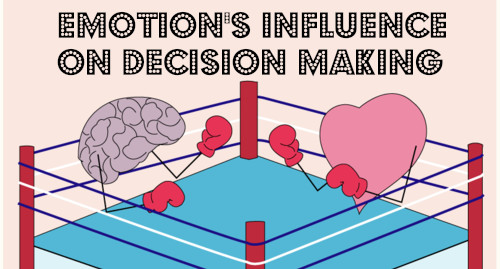The role of emotions in decision-making
How do emotions influence our choices, and how can we learn to make better decisions?
The role of emotions in decision-making is a topic of great interest to psychologists, neuroscientists, and philosophers alike.

Emotions can significantly impact our choices, shaping our perceptions, judgments, and behaviors in countless ways. While many people view emotions as irrational or unreliable, they can also be a powerful tool for guiding our decision-making and helping us achieve our goals.
In this essay, we will explore how reactions influence our choices, and how we can learn to make better decisions by understanding and managing our emotions.
To begin with, it is important to understand what emotions are and how they work. Emotions are complex psychological states that involve a range of physiological, cognitive, and behavioral responses to various stimuli.
Emotions are typically characterized by feelings of pleasure or pain. Triggered by factors such as internal thoughts, external events, and social interactions. They can range from positive (e.g., happiness, love, excitement) to negative (e.g., anger, fear, sadness), varying in intensity and duration based on the circumstances.
One of the most critical ways that emotions influence decision-making is by shaping our perceptions and judgments.
Emotions can color our interpretation of events and influence how we perceive risks, benefits, and trade-offs.
For example, feeling anxious may lead us to interpret a situation as dangerous or threatening, even without objective evidence. Conversely, feeling optimistic may cause us to overlook risks and focus solely on potential benefits.
Emotions can also influence our choices by affecting our motivation and behavior. Positive reactions such as joy, excitement, and inspiration can increase our motivation to pursue goals and take action.
For example, feeling inspired may encourage us to pursue creative projects or take on challenging tasks. Conversely, negative reactions like fear, anger, and anxiety can lead us to avoid or withdraw from situations perceived as risky or threatening.
For example, if we are feeling anxious, we may avoid social problems or public speaking opportunities that we perceive as embarrassing or uncomfortable.
Another way that reactions can influence decision-making is by interacting with our cognitive processes. Emotions can influence our attention, memory, and reasoning abilities. Shaping the information that we attend to and the strategies that we use to solve problems.
For example, feeling sad may lead us to focus on negative information and recall past failures, fostering a pessimistic outlook and decreased motivation. Conversely, feeling happy may make us notice positive information and recall past successes, promoting an optimistic outlook and increased motivation.
While reactions can have a powerful impact on our decision-making. They are not always reliable indicators of what we should do. Emotions can be influenced by biases, heuristics, and other cognitive shortcuts that can lead us astray.
For example, we might make decisions based on our current reactions rather than considering all available evidence. We might also prioritize immediate needs and desires over the long-term consequences of our actions.
So, how can we learn to make better decisions in the face of emotional influences? Developing emotional intelligence involves recognizing and regulating our own reactions, as well as understanding and empathizing with others’ reactions.
It helps us be more aware of how emotions affect decision-making and provides strategies for constructive emotional management.
Conclusion
Emotions play a crucial role in decision-making, shaping our perceptions, judgments, and behaviors in various ways. Reactions affect motivation, attention, memory, and reasoning, with both positive and negative impacts on decision-making.
Developing emotional intelligence and using strategies to minimize emotional influence can lead to more informed decisions.
Understanding and managing emotions helps in making thoughtful choices in personal and professional life. 바카라사이트